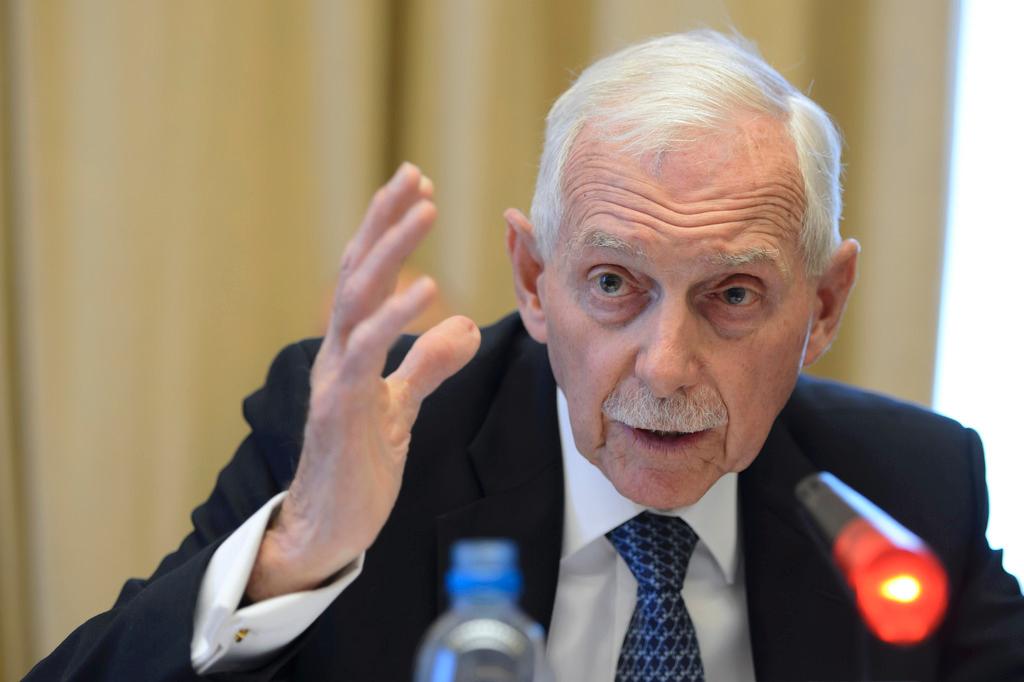Migrants in a time of terrorism
The past is a foreign country we no longer can see. We can't even visit -there is no passport to gain us entry - so it's high time we stop trying to live there. Immigration always looks better in hindsight. Whatever happened long-ago often gets remembered as a Golden Age, writes William Lacy Swing, director general of the International Organization for Migration (IOM).External link
Those thoughts rose as part of my initial reaction to last week’s shocking violence in Paris, and have been growing inside me ever since, as a week’s worth of sorrow, anger and, most of all, fear spilled forth in the wake of the tragedy.

“We are vindicated!” brayed anti-immigrant partisans, who predicted that allowing more arrivals from poor lands into rich ones is tantamount to standing defenseless before an invasion.
If so, then why not the counter argument of agencies like the one I direct, the International Organization for Migration (IOM), which have appealed for safe, secure and legal migration throughout what is now a two-year emergency across Europe and the Mediterranean region.
Are we not vindicated? We who have been arguing that the way to manage rising human mobility is to manage it – legally, safely – precisely so that dangers either to the migrants or the societies they enter are identified and addressed.
In fact, we live now at a time when neither argument makes sense. There simply is no place for finger-pointing, for rancor or for any such “I told you so” nonsense.
Migrants, refugees, “newcomers” – whatever we choose to call them – are coming, whether because of war, poverty or demographics. We need migrants and they need us. And the world needs leadership. It’s high time for mature societies to demonstrate that they’ll do whatever it takes to make this marriage work.
Yes, it sickens me to see what happened in Paris. It also sickens me to watch politicians respond by feeding the flames of fear, or racist bloggers put out tracts like one I saw this week warning “Syrian Rebels Arrive in New Orleans.” It’s all part of a disingenuous campaign to link the US’ generous offer to rescue more victims of that country’s civil war to jihadist violence, while simultaneously warning champions of realistic immigration reform to back off.
This last bit is hardly coincidental, nor limited to the US. It happens worldwide.
And that’s important. Just because such cynicism is transparent doesn’t mean it becomes any less contrived or dangerous. In fact, it becomes more so, by showing the world that counting on developed nations to fulfill a promise to be havens for the oppressed – wherever, and whoever, they are – is a fool’s errand, something only the very naïve would believe.
It sends another message, too. While people are dying in Iraq and Syria, in Africa – even in Paris – some leaders respond with bigotry to try to stop a tide that won’t be stopped in any case. Let’s recognize that migration is a mega-trend of our time, and we have to treat it with seriousness, not smears.
The debate is not lost, of course. There are societies to learn from: Canada, of course, whose exemplary management of diversity has made its thriving cities the envy of the world. And Sweden, another beacon, which opened its communities to refugees from Syria and much of Africa, practically without hesitation. Germany has spent the past 20 years striving to integrate a mainly Turkish and North African immigrant population.
In contrast, we see countries whose leaders only wish to bicker. I have to go all the way back to when I was a schoolboy to find an example from my lifetime of when adults acted so irresponsibly in the face of human tragedy.
While it meant nothing to me at the time, I’ve learned much over the years about the 1939 debate over a piece of legislation, the Wagner-Rogers bill, which asked Congress to let 200,000 Jewish children – all under the age of 14 – enter the US. The proposed legislation was a direct response to the Kristallnacht violence of the previous year in Nazi Germany – “terrorist” acts as evil as anything seen since.
Yet the bill never even came to a vote, so strong was anti-immigrant sentiment at that time. Failure to advance Wagner-Rogers, despite the horror many already could see on the horizon, is remembered today as among modern history’s most shameful moments.
It disheartens me to think the decisions world leaders may make in the weeks ahead will stir similar memories one day – memories of when our generation could have done more, but did even less.
The views expressed in this article are solely those of the author, and do not necessarily reflect the views of swissinfo.ch.
swissinfo.ch publishes op-ed articles by contributors writing on a wide range of topics – Swiss issues or those that impact Switzerland. The selection of articles presents a diversity of opinions designed to enrich the debate on the issues discussed.

In compliance with the JTI standards
More: SWI swissinfo.ch certified by the Journalism Trust Initiative

You can find an overview of ongoing debates with our journalists here. Please join us!
If you want to start a conversation about a topic raised in this article or want to report factual errors, email us at english@swissinfo.ch.